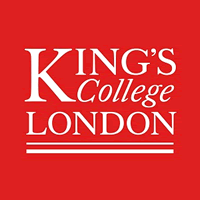
About the course
Course content
We have designed our Science & Security MA to provide you with a detailed understanding of science and its relationship to international politics. Developments in technology are central to all aspects of international conflict and you will need a multidisciplinary understanding of these developments to fully comprehend their policy implications. Through this programme you will gain a deep understanding of topics such as nuclear weapons, arms control verification, cyber security, and terrorism.
Key benefits
- We have designed this unique programme to develop your ability to understand and analyse the security implications of scientific and technological developments, while utilising knowledge and tools of analysis from the hard sciences, political science, history, philosophy and sociology.
- Our Centre for Science and Security Studies, based in the Department of War Studies, provides a vibrant home for our MA programme. It has a growing team of PhD students and researchers, and sponsors its own speaker series.
- You are encouraged to apply for internships (on our research projects and/or with other relevant institutions in London such as the Verification Research, Training and Information Centre (VERTIC) and IISS).
- You will have access to visiting academics, serving officers, government ministers and other experts who give regular public lectures and seminars.
- The Department of War Studies is unique in the UK and one of the very few university departments in the world devoted exclusively to the study of war as a human phenomenon.
- Our Department has an excellent reputation as a graduate-training institution and is recognised as such by the British Academy, the Arts and Humanities Research Council and the Economic and Social Research council.
- Taught by leading experts who bring an extensive and continually growing network of links with other departments, think-tanks, organisations, policymaking bodies and institutions.
Description
It is increasingly important to understand the security implications of scientific and technological developments. While science and technology have always affected national and international security, current developments in the space, nuclear and biological weapons and long-range missiles, as well as work in biotechnology and information technology suggest that science will exert a greater and more complex influence on security and policy planning. At the same time, individuals and sub-national groups have greater access to new technologies than ever before.
Our course will provide you with an integrated understanding of science and politics. You will develop an understanding of the science underlying key weapons systems and technologies, the main concepts and tools of international politics and security studies and the process by which scientists and policymakers can interact productively in the policy process. Our goal is to equip you to analyse the impact of current and future scientific developments on security.
Course purpose
Our course is designed to provide you with an integrated understanding of science and international politics to cope with the demands of the emerging security agenda.
Course format and assessment
Teaching
For lectures, seminars andf feedback, you will typically have 20-40 hours per 40 credit module plus 12 hours of dissertation supervision. You will also have approximately 360 hours per 40 credit module plus 588 hours for dissertation for self-study. Typically, one credit equates to 10 hours of work.
Assessment
Most 20 and 40-credit modules are assessed through a combination of essays, presentation, oral vivas and/or exams.
The dissertation module assessment will be based on a 100% dissertation assignment (up to 15,000 words).
Career prospects
War Studies graduates go on to work for NGOs, the FCO, the MOD, the Home Office, NATO, the UN or pursue careers in journalism, finance, academia, the diplomatic services, the armed forces and more. Recent posts held by our alumni include Threat Analyst, Director of Political Violence Forecasting, Research Advisor at NATO Defence College, Foreign Policy Fellow.